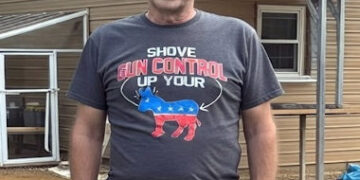Food Service Employee Theft: Part 1
Audio Assist Version
Over 80% off loss due to theft in food service, hotel or restaurant, is theft by employees. So, all the work you’ve done to reduce food costs, maximize profits by using your staff to promote high-profit items, the social marketing we’ll learn later, all those tactics you employ are completely obliterated by a couple of employees stealing.
This series is going to have extremely valuable information about employee theft, fraud, and sexual harassment. I’m going to share with you some of my experiences, what happened, and how we solved the problem.
When I first take over the role of Management in a given location, in addition to learning processes, staff names, and the books…..I’m always looking for how I would steal from this place. Literally, for the first 30 days, I’m casing the joint. You can bet, the loopholes I found have already been spotted by those who have already been there a year or two.
Let’s break it down into a pie chart
There are 3 slices in this pie. The first slice is the people that would never steal under any circumstance. The second slice is the people that actively look for ways to grab a few extra bucks per shift.
The third slice is the group of people that don’t actively seek ways to steal, but if it’s there for the taking, they may act. If they get away with it, the less guilt they feel the next time.
So if the pie equals 100%, what percentage of the people would never steal under any condition? That number is a solid 10%. We would like to think that number was higher but watch this. Slice number 2, people that steal everything they can get their hands on. What percentage of the pie is that? That number is also a solid 10%.
The 3rd slice of people that would steal if the opportunity seemed just right, is statistically 80%. Now, these people will feel guilt and may go a while before they try again. But, the first time something comes up in their personal life (an unexpected bill, car problems, spouse or partner gets their hours cut) all of these outside influences can drive them back to try again. The more they get away with it, the less guilty they feel. The less guilt, the more stealing.
Here are some real-life cases to help explain
First is the multi-order of the same item. We had a bartender that was notorious for selling 4 margaritas and putting 2 or 3 in the system. He would unplug the POS printer and blame the crappy service from the IT department for the fact he couldn’t print a receipt. Our margaritas were 7 dollars. So, that’s between 7 and 14 in his pocket. Plus the $8/hr and tips he was earning. The same guy would sell “Virgin Pina Coladas” according to the system. So he would ring up all 4 drinks. Problem is, they were regular Pina Coladas. The virgins were $4 and the real ones were $7. So that’s another $12 in his pocket. In that position, the typical bartender was making between $80 and $100 per shift. He was making more like $200 per shift. So, how did I catch him?
Think about it a minute, how would you catch him?
There were 4 ways I put together this scheme
- Employee chatter. Tipped employees love to brag about how much they made. Most of it is bluster and people, by nature, inflate their numbers to make themselves look better. However, his bragging was well over double everyone else. Usually, I would hear “I made $125 and the other say “I was lucky to make $100.” That’s standard things you would hear in the air.
Bob would say I made $200 because they love me. He would just blow everyone out of the water and give his exceptional customer service the credit.
- Liquor counts. At the end of the shift, the bartender would do their own liquor counts and turn in the list so the barback could pull inventory to stock for the next shift. Bob would often call in the middle of his shift for extra rum or tequila. That’s fine sometimes if it’s busy. But if you just got your stock a couple of hours ago, how are you already out of rum?
- He would always volunteer to work. Anytime someone called off, he was first to volunteer.
- He was my friend. He came to my house a few days each week or I was at his. We had several mutual friends outside work. We ran in the same social circles. We spent hours into the night out in my garage where I had 4 couches, a TV, and a fridge stocked with beer, the ultimate man cave.
So, now you know the situation. What would you do? You have an uneasy feeling that your friend may be stealing. To protect your friendship, you need to employ some tactics that don’t seem accusatory to see if your suspicions are correct.
Step 1. I gave him a trainee
People usually don’t pull their tricks if they have a new person right there. However, Bob was smart. He would have the trainee make the drinks and he ran the money until the trainee “earned” the right to the money till.
Step 2. Two Inventory Sheets
When I went down to open the pool bar each morning, I would meet the barback that was loading inventory. I would make sure the printer was plugged in and put some electrical tape on it to keep it plugged in. I gave the barback an “opening inventory sheet” to fill out BEFORE he loaded stock. Then, I could compare the 2 inventory sheets.
Step 3. Shift Disruption
I would interrupt or what I like to call Disrupt his shift by rewarding him with a break. You’ve been doing such a great job, let me take over a while. He would have no choice but to leave the till with overages and hope I didn’t count down. He knew he’d be back to close. While I was there, I would check the printer to see if it had been unplugged. (unknown to him, I had placed a sign in front of the bar that said “If we don’t give you a receipt, you will get a $5 credit on your next purchase”) It was right under his nose but he never walked around to the front and had no idea it was there.
Soon, I had the daily Inventory sheets for a week comparing his to the barback’s. I found a difference of about 6 bottles of Rum and 2 bottles of Tequila.
I pulled the sales from the other bartenders and compared the “Virgin” drinks to the real ones. During Bob’s shifts, he was selling so many “Virgin” Pina Colada it was like a bus full of 8th graders came to the bar for each of his shifts.
Now, we have all the evidence. You just had your Discipline training. What would you do?
So, in your discipline training, we talked about trading the known for the unknown. We discussed employee retention and position reassignment. Discipline must be fair. If I fired him on the spot, he would just go down the street and do the same thing to the next place. Plus, he was my actual friend. I hate working with friends, but oftentimes friendships blossom when you’re around someone 8-10 hours a day for weeks and months on end.
Remember, Your friends are more inclined to steal because they feel you trust them and your guard is down around them.
So, here’s what I did. I brought Bob into the office and presented my evidence. I calculated the approximate value of his theft to be around $3,000. In reality, I was only looking at rum and tequila. A full audit would have been closer to $5,000.
In my State, any employee theft over $700 was considered Grand Larceny and a Felony. I reminded him that there could be a policeman outside my office door if our meeting didn’t go well. Other than his theft of convenience, he did have some assets. He was excellent with customers, well-groomed, funny, and knew the business inside out.
I told him I was going to do 2 things. First, I was going to garnish his wages for $3,000 to be paid $20 per week out of his check. If he quit, I would apply his last check to the balance and send the difference to the City Prosecutor which means if it was still over $700, it was a felony.
Secondly, I made him a room service runner. He had to get his ticket from the Host and settle up after every order.
I reclaimed the loss to the Hotel and kept an otherwise good employee. He was so grateful to be given a fair option, his career was saved but our friendship suffered a tad. But, as I told him, I’m not the thief. I’m not going to lose my 60K job because it got found out I turned a blind eye to you.
In the next lesson, I will give you another example that went altogether differently.
Food Service Employee Theft Food Service Employee Theft Food Service Employee Theft






















































































